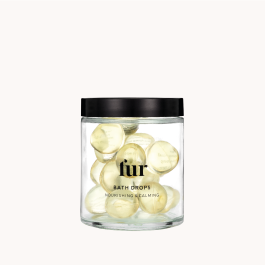4x Taking hormones to get pregnant
Fertility treatments, how do they work? Cycle investigated.
Of course, there are many different reasons that can cause you to struggle with getting pregnant. A hormonal imbalance is only one of them. Many women can use hormones to regulate their cycle and kickstart their ovulation. There are also hormonal treatments that stimulate the maturation of the ovum, which is often used when you qualify for In-Vitro Fertilisation (IVF), Intracytoplasmic Sperm Injection (ICSI) or Intrauterine Insemination (IUI) (wish to read more about this? Click here).
The hypothalamus (a part of the brain) and the pituitary gland (which hangs below the hypothalamus) regulate your hormone balance. The hypothalamus produces GnRH, a messenger-hormone. It tells the pituitary gland to release FSH (Follicle Stimulating Hormone) and LH (Luteinizing Hormone), which stimulate the ovum maturation and ovulation. The effect that hormones from your hypothalamus and pituitary glands have on your ovaries is a very well-calculated one. Still, lots of things can go wrong, such as if one of the organs isn’t functioning properly or if the transportation of the hormones is stilted. If that’s the case, problems can arise, such as an ovulation that doesn’t happen or only happens every now and then. This means that your menstruation can become irregular or fully disappear.
The following hormonal treatments are regularly used when there’s a struggle to get pregnant due to a hormonal deficit:
Ovulation induction
Ovulation induction is a hormonal treatment that works to create ovulation. It uses clomiphene tablets, gonadotropin injections, a GnRH hormone pump or bromocriptine tablets.
Intrauterine insemination (IUI)
In IUI, the sperm cells are altered in the lab and inserted into the uterus. The woman+ will often be prescribed clomiphene tablets and gonadotropin injections. These are supportive hormones, which encourage the growth of the eggs, and support its maturation. Occasionally, progesterone is also given to prepare the endometrium for the implantation of the embryo.
in-vitro fertilization (ivf) and intracytoplasmic sperm injection (icsi)
In an IVF or ICSI treatment, you’ll generally be prescribed four different hormonal treatments: GnRH agonist or GnRH antagonist, to stop your cycle, then gonadotropins, to stimulate the ovaries, hCG, which promotes the ripening of the egg cells and progesterone, which prepares the uterine lining for implantation of the embryo.
Hormones can be administered in tablet form, through injections, by vaginally inserted tablets or gels, or through a hormone pump. There are many different medications that are used for many different treatments. We’ve made an overview:
clomiphene or clomid
Clomiphene is an ovulation stimulant in pill form that is only available through prescription. It’s very similar to natural estrogen. It’ll reach the hypothalamus through the bloodstream, where it will block your own production of estrogen. This will make your hypothalamus produce more GnRH (Gonadotropin Releasing Hormone, which is used to shut down your cycle), which means that more LH (Luteinizing Hormone) and FSH (Follicle Stimulating Hormone) will be released, and the egg cells will grow. Overstimulation does give you the risk of more egg cells being released at once, which is why the use of clomiphene also increases the risk of multiple births. Not all women+ respond well to clomiphene (side effects include headaches, hot flashes, dizziness, and mood swings), which is why this treatment sometimes opts for gonadotropin injections instead.
Dostinex
Prolactin is a hormone that acts on the mammary gland tissue and initiates the production of breast milk. Its side effect is that it inhibits ovulation, which is why you have a slightly smaller chance of pregnancy when you’re breastfeeding. The drug Dostinex contains the active substance cabergoline, which slows down the production of prolactin by the pituitary gland.
You’ll usually only have to take a tablet twice a week. Sadly, this substance also has some side effects, of which some can be quite severe: headaches, dizziness, fatigue, hot flashes, sleep disorders, depression, throwing up, heart palpitations, rashes, leg cramps, respiratory failure, impaired vision, aggression, delusions, hallucinations and psychosis.
Bravelle
Bravelle is a medication that is administered through injections. You can do these yourself. It helps you to produce mature eggs, and is often used in combination with the hormone that kick-starts ovulation. Research has shown that about a third of the women who use Bravelle actually get pregnant. The side effects are quite serious: headaches, bloated abdomen, diarrhea, mood swings, dizziness, itchiness, fatigue, and redness on the site of injection.
Ganirelix
Ganirelix is usually used in combination with other hormones (FSH, the hormone that stimulates the production of estrogen and hCG, the hormone you produce when you are pregnant). Ganirelix blocks the secretion of a hormone (LH) that stimulates ovulation. It helps delay ovulation to increase the chance of fertile eggs. Ganirelix and FSH are given through an injection, after which an hcG injection is given. This, too, causes a long list of side effects: abdominal pain, bloating, diarrhea, weight gain, dizziness, coughing, shortness of breath, rashes, fatigue, and redness and pain or swelling at the injection site.
Up to this point, there have been no indications that fertility hormones are harmful to your body. However, not a lot is known about the long term effects. There’s a large ongoing research project with 20,000 female participants that’s aiming to learn more about this. A well known risk of hormone use is the chance of having multiple babies, and also OHSS (Ovarian Hyperstimulation Syndrome, in which egg sacs can leak fluid), which is an unpleasant side effect that occurs in 2% of cases. Do you want to learn more about OHSS? Click here.
Getting pregnant when you have fertility issues can take a toll on your body, mental wellbeing, and perseverance. Hormone stimulation is not necessarily always the easiest solution, because of all the side effects. Therefore, always make sure to be well-informed by your GP or doctor before you start!


























